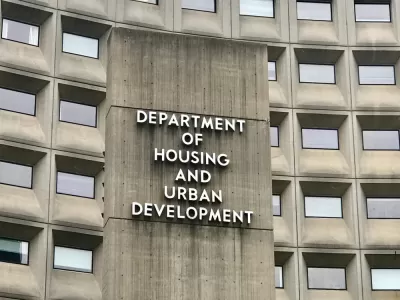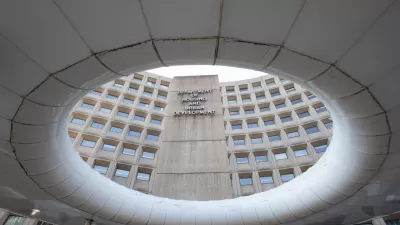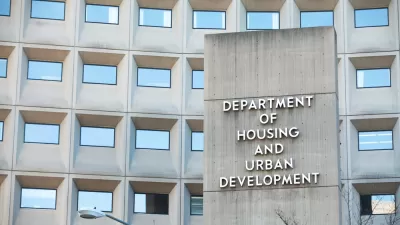The department is proposing an updated version of the Affirmatively Furthering Fair Housing rule, which requires local governments to take action to end residential segregation.

In an opinion piece published on CNN.com, Department of Housing and Urban Development Secretary Marcia L. Fudge explains the importance of the Affirmatively Furthering Fair Housing rule, a mandate aimed at furthering the Fair Housing Act that was ended by the Trump administration in 2020.
The rule “requires HUD, and those who receive our funding, to take proactive and meaningful action to overcome patterns of segregation, to promote fair housing choice, eliminate disparities in housing-related opportunities and foster inclusive communities that are free from discrimination,” Fudge explains. Now, the Biden administration is proposing an updated version “that builds on the successes of the 2015 rule and proposes refinements to make it stronger, based on a deliberative and thoughtful engagement process.”
According to Fudge, the proposal would enable state and local leaders to advance fair housing and create mechanisms to leverage federal funding with other sources. “Most importantly, the proposed rule would give the community a seat at the table in our ongoing work to guarantee fair housing, while adding accountability mechanisms to ensure that recipients of HUD funding comply with their duty to affirmatively further fair housing.”
While Trump called the previous AFFH rule an attempt to “abolish the suburbs,” fair housing advocates see it as a way for the federal government to ensure that cities and states examine any potential civil rights violations and develop plans to address historical inequities in their housing markets. The 2015 rule established a concrete framework for compliance that included an assessment some communities found too onerous. An article in Bloomberg CityLab explains that the proposed Biden rule, which calls on municipalities to produce local equity plans every five years, will give local officials greater flexibility.
FULL STORY: Opinion: HUD Secretary on how to make fair housing a reality

Alabama: Trump Terminates Settlements for Black Communities Harmed By Raw Sewage
Trump deemed the landmark civil rights agreement “illegal DEI and environmental justice policy.”

Planetizen Federal Action Tracker
A weekly monitor of how Trump’s orders and actions are impacting planners and planning in America.

Why Should We Subsidize Public Transportation?
Many public transit agencies face financial stress due to rising costs, declining fare revenue, and declining subsidies. Transit advocates must provide a strong business case for increasing public transit funding.

Understanding Road Diets
An explainer from Momentum highlights the advantages of reducing vehicle lanes in favor of more bike, transit, and pedestrian infrastructure.

New California Law Regulates Warehouse Pollution
A new law tightens building and emissions regulations for large distribution warehouses to mitigate air pollution and traffic in surrounding communities.

Phoenix Announces Opening Date for Light Rail Extension
The South Central extension will connect South Phoenix to downtown and other major hubs starting on June 7.
Urban Design for Planners 1: Software Tools
This six-course series explores essential urban design concepts using open source software and equips planners with the tools they need to participate fully in the urban design process.
Planning for Universal Design
Learn the tools for implementing Universal Design in planning regulations.
Caltrans
Smith Gee Studio
Institute for Housing and Urban Development Studies (IHS)
City of Grandview
Harvard GSD Executive Education
Toledo-Lucas County Plan Commissions
Salt Lake City
NYU Wagner Graduate School of Public Service





























